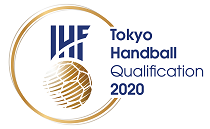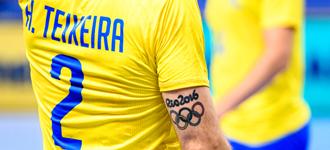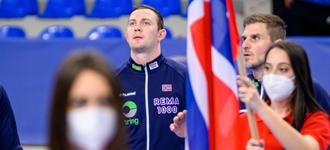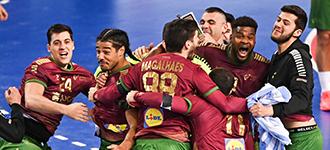Gislason: “I’ve been counting the days”
12 Mar. 2021

On Sunday afternoon, the majority of the German team had their first training session in preparation for the Tokyo Handball Qualification 2020. Johannes Golla, Philipp Weber, Johannes Bitter and Fabian Wiede completed the squad after having played their matches in the German Bundesliga on Sunday evening.
“I was very excited to start this week. The tournament is an incredibly important event and we are eager to show that we’ve learned from our mistakes we made throughout the World Championship and to qualify for the Olympic Games,” said right wing Timo Kastening on the first online media conference on Sunday.
“The players come from different workloads. Some played the Champions League or the European League and others had one or two games in the last weeks. I try to reduce the intensity as much as possible to them who played a lot, all others can train as usual,” said head coach Alfred Gislason on Monday. “It’s good that everyone can train this afternoon.”
Germany are the only team in Tournament 3 that were able to prepare the whole week for the Tokyo Handball Qualification 2020 without having to travel or play an EHF EURO qualification match like Slovenia and Sweden. And through the daily online media conferences everyone could sense the joy and excitement every player and coach were feeling.
“We all know that this tournament won’t be easy and that we will play against very good opponents,” stated Gislason. “I am looking forward to this challenge. I've been counting down the days for weeks that it finally starts. I have a lot of confidence in the team and they are very motivated. The Olympic Games are the biggest thing for any athlete and you have to show that you deserve to get there.”
The return of key players
“I feel good. The last two weeks have been very exhausting but now my focus is on the national team,” said line player Patrick Wiencek on Monday. “I’m happy that Alfred starts with an easy training session and that we in general start slowly with tactical things and watching video so that we are ready in one or two days.”
After missing out on the IHF Men’s World Championship, Wiencek returns to the national team together with his teammates from THW Kiel, Hendrik Pekeler and Steffen Weinhold.
“I am happy to be back, it has been a while and it is also good to have five days to fully prepare for the upcoming matches.”
Not only Wiencek is happy to be back but also the whole squad. “We are stronger now regarding experience but also in terms of height. Pekeler and Wiencek know each other very well,” said Gislason.
“We are more variable in defence because we can play not only 6-0 but also 3-2-1. Our goalkeepers have to adapt to that as well and be prepared for different throws from the attack. But I think the cooperation between the defence and the goalkeepers will work well and that they all have a good feeling,” added assistant coach Erik Wudtke.
“I think it will help a lot that Pekeler and Wiencek are back. We will have a great stability not only in defence but also for our goalkeepers and we are able to focus more on the counterattack. It’s a huge advantage for us,” commented centre back Philipp Weber the return of the players from THW Kiel.
The return of several players will not only have an effect on the defence but also on the attack.
“Fabian Wiede and Steffen Weinhold are two different players in terms of style which will automatically create another playing style in attack and also Pekeler and Wiencek are different line players which makes it even harder to predict our attack. I hope that we can keep up our good phases in attack for longer than in the games against Spain and Hungary and that we are able to put more pressure on our opponents,” said Wudtke on the new situation in attack.
Captain Uwe Gensheimer also mentioned that “we had problems shifting from defence to attack because we had to change two players and I think we are better prepared for that now because we don’t have to change that often. We will be able to switch faster into the counterattack and to score more easy goals.”
Three matches in three days
The challenge of playing three matches in three days is tough. In Kastenings’ opinion, the order of who to play first is not important.
“We have to play against every opponent. At the end it’s not important who we play first because we have to win every match. After the draw for the tournament, Slovenia just finished fourth at the European Championship and now Sweden won the silver medal at the World Championship. And also Algeria is a really important match. I think that throughout the weekend, the flow and the daily form will be decisive.”
“It’s a tough group and it will be three very high-quality matches. But we have a good depth in our team and the advantage of no travelling,” added Wiencek “The defence will be very important, but we have three matches in three days and that is physically extremely exhausting and we all will miss some power over the time.”
To play three important matches in a row is physically very tough but also mentally, as there won’t be a lot time to recover.
“The mental challenge at this weekend is very high to play three different matches in three days and to be prepared for every match. You have to process the matches quickly and that is mentally challenging,” highlighted Wudtke.
Is there still a home advantage?
“Of course, it’s sad that we can’t play in front of spectators. I remember a statement from a Slovenian friend who said that he can imagine standing a good chance against us when there will be no spectators. Of course, that was before the pandemic. Still, we play on home ground and even without the spectators we try to create our own home advantage,” said Gislason.
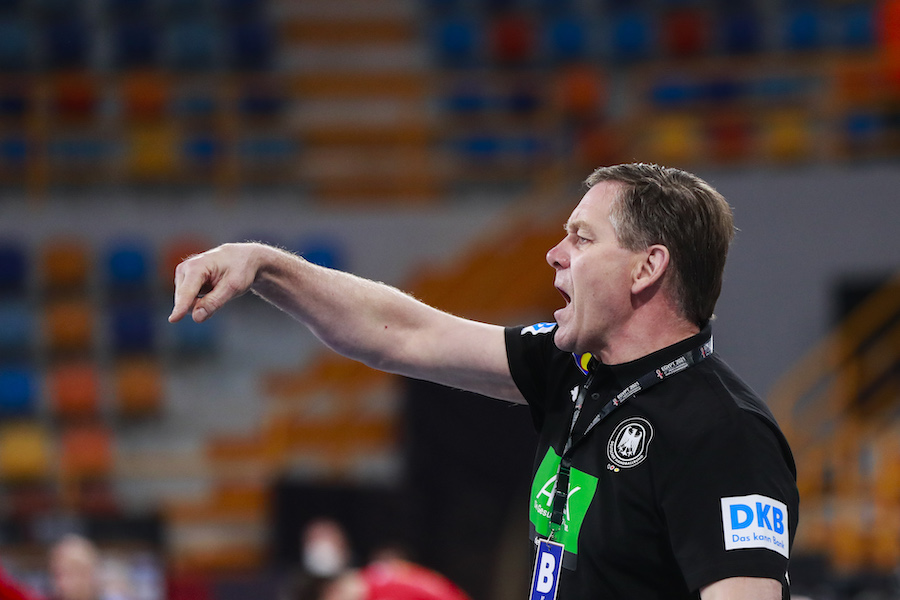
“Although it’s without spectators, we are still playing in our home country, every player knows the arena, we are in a known environment and that’s an advantage,” mentioned Vice President for the German Handball Federation Bob Hanning.
For one player in particular it will be very special, as Fabien Wiede, playing for Füchse Berlin, will return to the national team after having played his last match in October 2019 in ‘his’ arena.
“It’s been a long time and I am happy to be back. We want to show the best we can. We prepared as best as we could and we want to qualify for the Olympic Games.”
Weber pointed out another advantage that comes with the return of several key players:
“We have a lot of changes in our team, maybe that’s the big advantage for us that we are harder to predict now and that our opponents don’t really know what to expect,” and like Wiede, he is very excited: “I’m really looking forward to the tournament. The Olympic Games are an event that everyone wants to take part in. We have some players who haven't been there yet, some who already know how it is to play them and some who might have the chance for the last time.”
Gensheimer summarised the motivation for the qualification perfectly one day ahead of the matches.
“The motivation to qualify for the Olympic Games is huge. We played an amazing tournament in Rio 2016 where we won the bronze medal. It’s an event we will never forget and therefore the motivation is high to play the Olympic Games again.”


